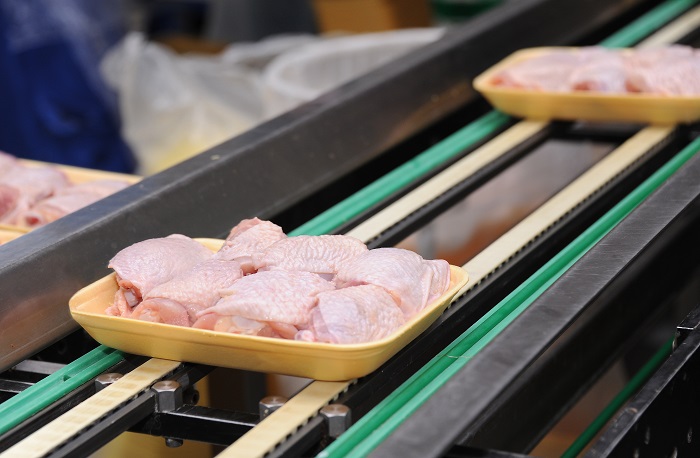By Chloe Ryan
The curious case of whether chlorinated chicken is safe or not rumbles on, and just like the whole Brexit thing generally, it’s hard to know how it’s going to play out.
A new study by scientists at the university of Southampton has shown that chlorine washing of fresh food doesn’t actually kill bacteria like salmonella. It simply makes it impossible to culture those bacteria in a lab environment. In other words, it doesn’t work.
Even worse, because a chlorine wash effectively hides the bacteria, it gives a false impression of safety that could lead consumers to being less cautious in the kitchen than they might be otherwise.
The results of the study were published in an American scientific journal, mBio, and picked up by Jay Rayner, the food critic, who wrote a story in last week’s Observer. The study itself focussed on chlorine washed spinach, but apparently, the scientists say it’s applicable to all foods, including chicken.
The axis on which all this spins is of course Brexit. In the US, chlorine washing of chicken is a common practice, unlike in the EU where it’s banned. Once the UK is divorced from the EU, signing a trade deal with the US will be an important notch on the bedpost signalling the newly single UK is well and truly moving on.
Food will almost certainly be included in such a trade deal. Last November, Wilbur Ross, the US commerce secretary, suggested any post-Brexit deal with Washington would hinge on the UK scrapping some EU rules that hinder imports of US chicken washed in chlorine.
Government ministers are split on the issue, with Michael Gove and George Eustice at Defra promising UK standards won’t be compromised, and Liam Fox at International Trade arguing in favour of ‘consumer choice’.
In some ways, the argument about food safety is a straw man. All raw poultry has bacteria on it that can make people ill. The key as we are all reminded every Christmas in adverts sponsored by the Food Standards Agency, is to cook it properly and not eat any poultry that’s still pink or has juice that’s any colour other than clear.
Food safety is a convenient hook to hang the argument on, but really this is about several other things, chief among them the fact US farmers grow chickens in a way that directly threatens British farmers’ livelihoods.
According to information provided by the British Poultry Council, the US poultry industry is far less regulated than the UK, leading to lower environmental and welfare standards.
For example, the UK and EU have multiple pieces of national legislation aimed at various aspects of animal welfare. For chicken alone this includes on-farm, catching, transport, and at slaughter. The US has no national welfare legislation covering farm animal welfare. Some states have laws but as of August 2016 the three major chicken producing states of Georgia, Alabama, and Arkansas did not. In the absence of legislation, the voluntary standards of the National Chicken Council are observed.
In the UK, an environmental permit is mandatory for farms with over 40,000 birds, with requirements to use the ‘Best Available Techniques’ to minimise impact. The US requires a permit for farms with over 125,000 birds, and the use of a management plan.
The UK and EU do not allow meat and bone meal from other terrestrial species, e.g. pigs, to be used in poultry feed. Some processed fishmeal is permitted. The US allows meat and bone meal to be used in poultry feed.
What this really comes down to is whether we want to protect our farming industry, or whether we as a nation are happy to outsource our food production to the lowest bidder.
Chlorine washing is being used as an emotive and visceral example of how others do things that wouldn’t pass the average British shopper’s sniff test of things they’re comfortable with.
As the BPC puts it: “British poultry producers don’t dip their chicken carcases in chlorine as we do not believe in ‘cleaning up at the end’ or taking any short-cuts when it comes to producing safe food. Using chemicals to disinfect food at the end of a production process can hide a multitude of sins, but what it can’t hide is the need for their use in the first place.”
Let’s not confuse the issue. This is about making sure Britain still has a food and farming industry that’s not forced to degrade itself beyond recognition merely to survive.


